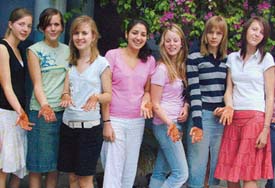The new phenomenon seen nowadays in higher education around the world is the online open courses, also known as MOOCs. So, what is MOOC?A MOOC is an open online course that can be pursued by the masses through Internet. In a MOOC, the course materials are uploaded by a University, college or institute through portals like edX, etc.These portals allow students from across the world to enrol into a course of their choice free of cost and access the course material of institutes like Harvard, Stanford, Princeton, University of British Columbia, and University of Melbourne, University of Toronto.
The good part is that while doing a particular course, students may be given assignments and exams to complete and at the end of the course certificates of course completion are also granted.So all those students who want to upgrade their skills into specific fields, this is probably what you can check out. Also, the courses available on MOOCs are plenty. Be it medicine, law, computer science, business and management, Business Administrationn and social sciences, everything is available and that too for free.It is estimated that close to 400 courses are available through MOOCs, and the lists are growing. Each course takes around 600 hours to convert to be online ready, and cost the university approx $45,000.
As per The Horizon Report of 2012, Higher Education Edition predicts how emerging technologies in education will have an impact in the next five years globally. People will increasingly expect to work, learn and study, at anytime and anywhere. MOOCs will allow this.In Kenya, there is rising access to the Internet owing to broadband technologies. The Internet is also becoming more affordable. The University of Melbourne in Australia signed up to Coursera in Septemb,er and in just over two months, it had more than 52,000 enrolment.Now the question arises, why are universities interested in sharing their courses with the world for free?Having their course material available to all, universities get to interact with students of caliber, who otherwise do not participate in such classes. Such an experience also opens up new theories, arguments and reasoning.Also, students are unable to make it into top institutions get to feel how things are taught in such institutes.
The good part is that while doing a particular course, students may be given assignments and exams to complete and at the end of the course certificates of course completion are also granted.So all those students who want to upgrade their skills into specific fields, this is probably what you can check out. Also, the courses available on MOOCs are plenty. Be it medicine, law, computer science, business and management, Business Administrationn and social sciences, everything is available and that too for free.It is estimated that close to 400 courses are available through MOOCs, and the lists are growing. Each course takes around 600 hours to convert to be online ready, and cost the university approx $45,000.
As per The Horizon Report of 2012, Higher Education Edition predicts how emerging technologies in education will have an impact in the next five years globally. People will increasingly expect to work, learn and study, at anytime and anywhere. MOOCs will allow this.In Kenya, there is rising access to the Internet owing to broadband technologies. The Internet is also becoming more affordable. The University of Melbourne in Australia signed up to Coursera in Septemb,er and in just over two months, it had more than 52,000 enrolment.Now the question arises, why are universities interested in sharing their courses with the world for free?Having their course material available to all, universities get to interact with students of caliber, who otherwise do not participate in such classes. Such an experience also opens up new theories, arguments and reasoning.Also, students are unable to make it into top institutions get to feel how things are taught in such institutes.



























